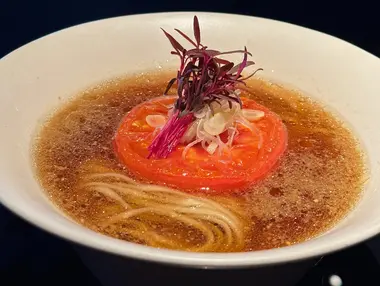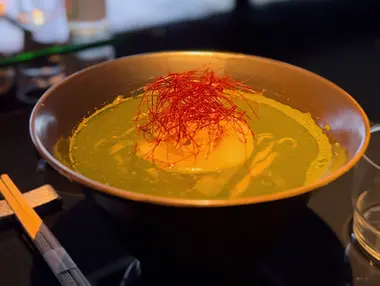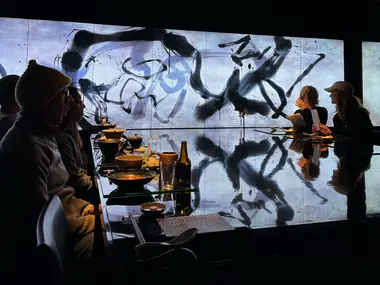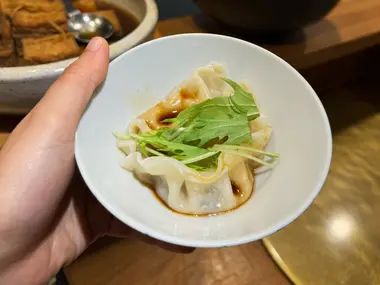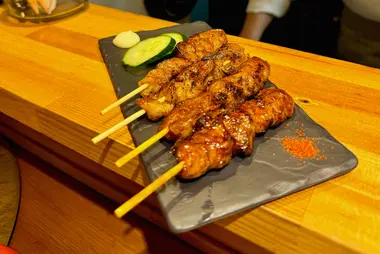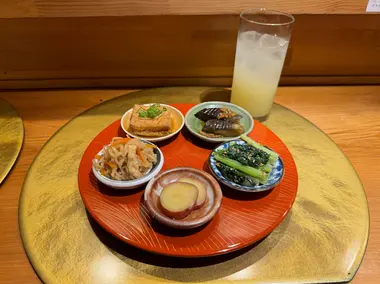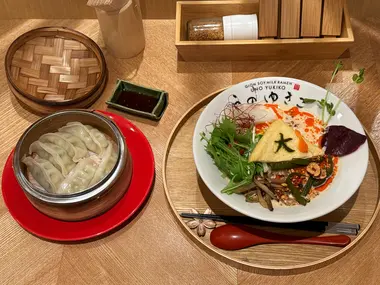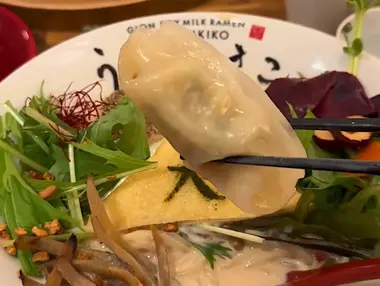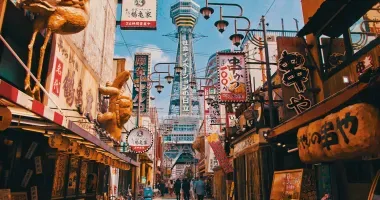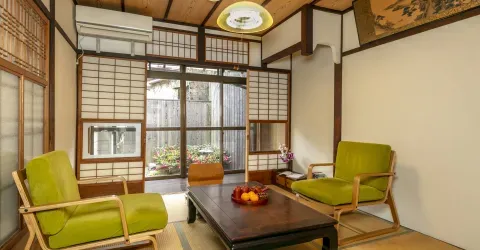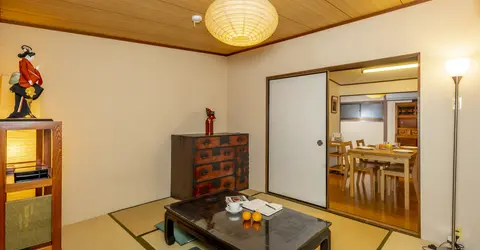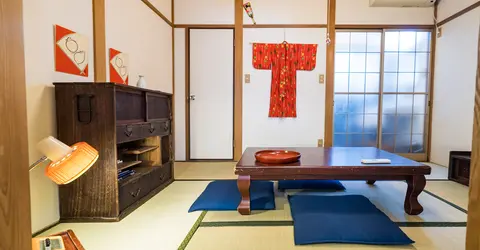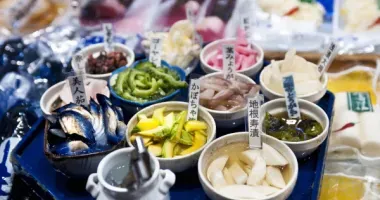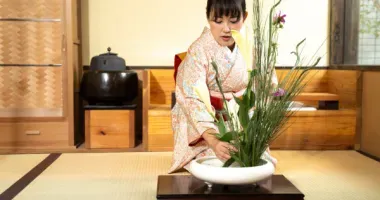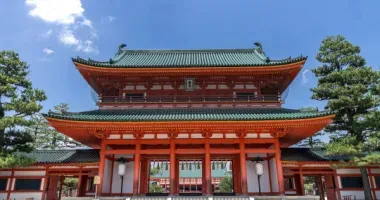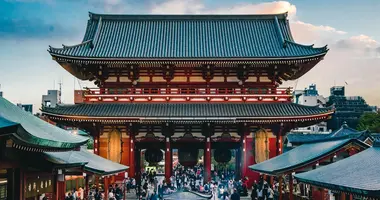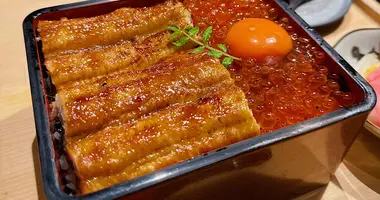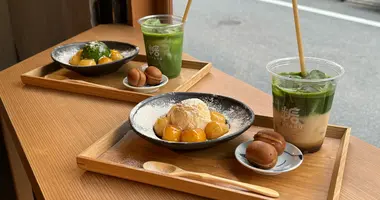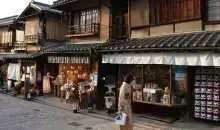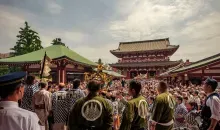3 great vegan restaurants to visit in Kyoto!
- Published on : 05/12/2024
- by : Joshua
- Youtube
Keeping up a vegan diet when visiting Japan can be difficult, but there are more and more restaurants popping up in Japan centered around plant-based cooking! Kyoto is one of the most popular destinations throughout the country, so here are three vegan restaurants to check out for your next trip out to this city!
Believe it or not, for around 1,200 years of their history, starting from the year 675 A.D., the people of Japan consumed a largely plant-based diet. Fish would sometimes be eaten, but only on special occasions for the societal elite. These practices were largely instituted for religious purposes, with Buddhism and Shintoism having a strong focus on nature and preservation. It wasn’t until the beginning of the Meiji Period, a time of increased westernization after a long stint of isolation, that meat consumption became more common.
Despite this history, a vegan diet in modern-day Japan is said to be quite the challenge, something that followers of the diet who visit the country experience first-hand. However, there is a new wave of chefs and restaurants looking to provide staples of Japan’s world-beloved food culture in a vegan-friendly way. Kyoto is home to some of these tried and true establishments. Here are a few of our favorites located within the ancient capital.
Vegan Ramen UZU Kyoto
Ramen is a dish synonymous with modern Japanese cuisine. Originally derived from noodle soup dishes from China, ramen has developed a dedicated subculture and following among foodies around the world. However, a vast majority of ramens entail the use of some type of animal product, even if it doesn’t seem like it. Aside from the apparent additions of proteins like chashu, the broth of popular ramens like tonkotsu and toripaitan is made by the simmering of pork and chicken bones, respectively.
Niboshi ramen is made using a similar process, but with a seasoned dried fish, and even most salt, soy sauce, and miso ramens require dashi, a fish-based broth, to achieve their flavor.
Vegan Ramen UZU in Kyoto offers fully plant-based ramen that cuts no corners in regards to providing the rich, satisfying umami that ramen is known for. UZU utilizes a combination of kombu and domestically sourced mushrooms to produce a bold and earthy broth for the soup, and the signature roasted tomato adds a great, strong aromatic flavor. UZU also offers tsukemen on their menu, with noodles made for dipping into a spicy miso-based broth that is a bit on the thicker side. For a more all-encompassing experience, UZU has a multi-course menu featuring their in-house hojicha kombucha, vegan appetizers, the signature ramen or tsukemen, and then non-dairy-based ice cream.
UZU’s aesthetic and interior are just as standout as the food. Atmospheric lighting is complimented by live LED panel walls surrounding diners with moving calligraphy-based art swirling around. UZU is consistently featured in Kyoto’s Michelin Guide with a Bib Gourmand award, bestowed to restaurants offering great quality dining experiences at a relatively accessible price.
Nijiya Vegan Izakaya
The Izakaya is a mainstay in Japanese culture, not just for cuisine but also for social interaction. An Izakaya may be best described as a Japanese version of a "pub” in the western context, where both drinks and food take center stage on the menu. At an izakaya, patrons can enjoy a number of hearty small plates, including different grilled meats, fried foods, Japanese-style pickles, and many, many more depending on the restaurant!
Alongside these savory dishes, classic beverage options often include beer, be it bottle or on tap, sake from distilleries all over the country, and whiskey and shochu-based cocktails.
“Nijiya” translates to “rainbow shop” or “rainbow house” and lives up to its name with its varied and colorful offerings of Japanese Izakaya staples with plant-based ingredients. On the menu, soy meat products are prepared in similar ways to their izakaya counterparts, with “yakitori” skewered and chargrilled and strips of “yakiniku” (grilled meat) marinated with a nice bite. Yuba (tofu skin) dishes are also a major staple of the menu. The izakaya’s claim to fame, however, is the chazuke, in which tea or dashi is poured over rice and then mixed; a great closing dish to fill up diners. Per the izakaya title, the drink options are also great, largely sourced from local Kyoto producers.
This modest eatery only has seven seats with one counter, making it a distinctly intimate dining setting. At the moment, reservations aren’t accepted, so seating works on a first-come, first-served basis. Since Nijiya is operated by a relatively small team, it’s opening days may vary by month, so it is best to follow them on Instagram (@nijiya.kyoto) to stay updated on the operating schedule. This is also a great way to stay caught up on their specials that change, warranting multiple visits!
Gion Soy Milk Ramen UNO YAKIKO
As previously mentioned, ramen is a staple food in Japan that must largely be avoided by vegans. However, there is a common ingredient utilized in plant-based cooking that is already in common use in many Asian cuisines, Japan included: soy milk! In Japan, soy milk is used for much more than a dairy substitute in coffee, as it often serves as a base for creamy broths for use in soups and hot pots.
Uno Yakiko in Kyoto’s famous Gion district has taken this established concept and adjusted it for a vegan-friendly ramen that is standout enough to be appreciated by any lover of noodle dishes!
Uno Yakiko’s menu has three signature ramen dishes, each with a soy milk-based broth seasoned with gluten-free soy sauce: The ramen “hana,” with vegetables and mushrooms that is also served with toasted rice to eat like a risotto at the end, “gekka,” with sesame notes and spicy oil, and their signature “yuki zuki,” based off of a traditional Kyoto delicacy known as “ozoni,” a soy milk-based stew commonly eaten around New Years. The noodles are also kneaded without gluten, instead using kombu, making the ramen accessible even to those with gluten intolerance or Celiac’s disease.
Uno Yakiko boasts an impressive selection of side dishes as well, with their soy-meat dumplings and curry gyoza being customer favorites. The cocktails on the menu also use soy milk as a base, and the beers are all gluten-free as well. Uno Yakiko tries its best to be as accommodating to those with special dietary needs as possible without sacrificing flavor or satisfaction that a ramen spot is often visited for.

